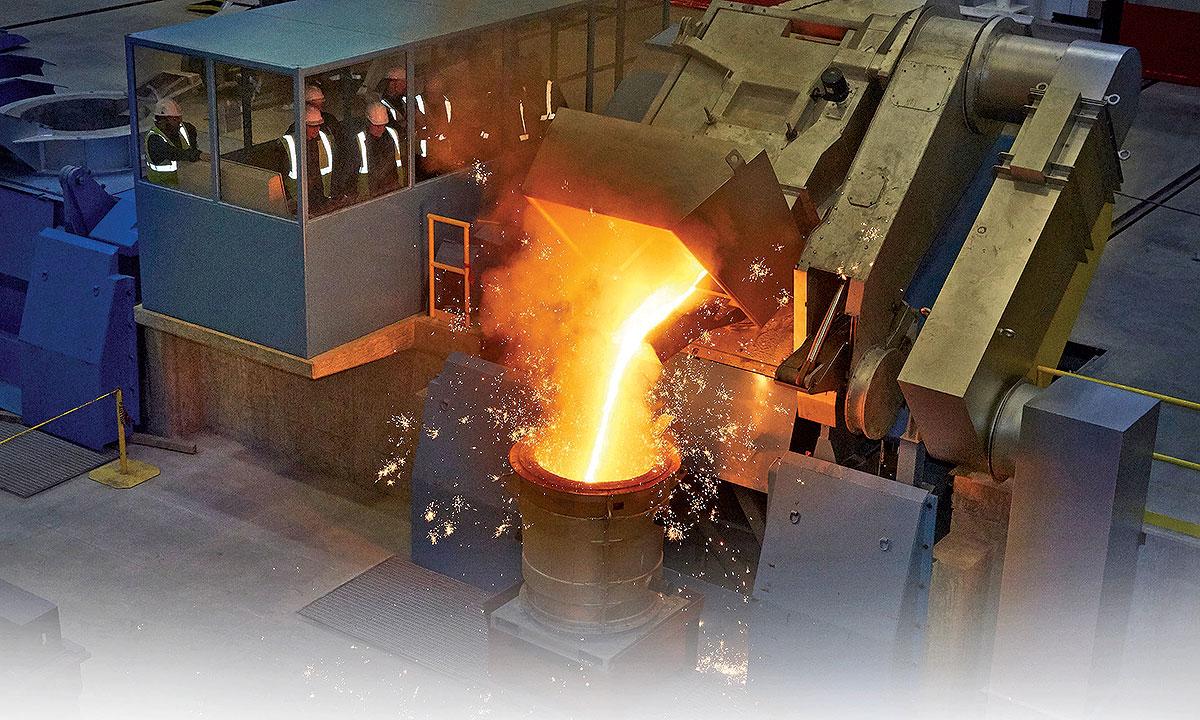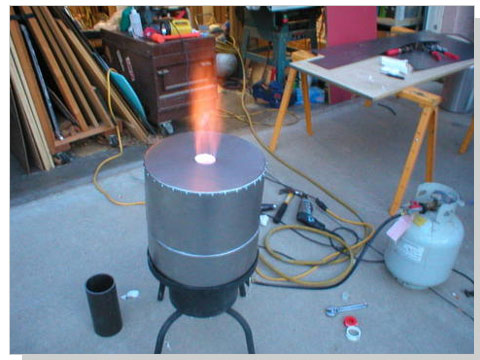How an Aluminum Foundry produces high-grade finished components
Just How a Metal Foundry Adds to Sustainable Metal Production Practices
Metal foundries play an essential duty in promoting sustainability within the metal manufacturing sector. By including recycled products, they reduce reliance on virgin sources and reduce ecological impacts. Energy-efficient melting procedures further decrease energy consumption and emissions. However, the journey towards sustainable techniques includes more than just reusing and power monitoring. It includes a broader commitment to moral sourcing and ingenious technologies. The implications of these techniques are significant and warrant better examination.
The Function of Recycling in Metal Foundries
While metal production has typically relied upon virgin materials, the boosting emphasis on sustainability has actually resulted in a substantial shift in methods, particularly in metal foundries. Recycling has actually arised as a necessary element of this change, enabling foundries to repurpose scrap metal and minimize dependence on extracted sources. By integrating recycled materials into their processes, foundries not just reduce ecological influence however likewise reduced production expenses.
The use of recycled metals, such as copper, aluminum, and steel, decreases power consumption and minimizes greenhouse gas discharges related to typical mining and refining approaches. Foundries can accomplish top quality outcomes by utilizing sophisticated sorting and processing modern technologies to assure the pureness of recycled products. This focus on reusing fosters a round economic situation, where waste is lessened, and sources are used effectively. As a result, metal foundries play an essential function in advertising lasting methods within the metal manufacturing market.
Energy-Efficient Melting Techniques
Energy-efficient melting strategies are essential for improving sustainability in metal production. These methods substantially reduce energy intake during the melting process, which is just one of one of the most energy-intensive phases in metal manufacturing. Technologies such as induction melting, resistance heating, and microwave melting offer boosted efficiency contrasted to traditional methods. Induction melting, for example, uses electromagnetic fields to create warmth directly within the metal, reducing energy loss and supplying accurate temperature level control.
Furthermore, applying heat healing systems can better improve effectiveness by capturing and recycling waste warmth generated throughout melting. Using sophisticated insulation products and optimizing furnace layouts also contribute to energy financial savings. By embracing these innovative melting methods, metal foundries can reduce their carbon footprint, lower functional costs, and add to an extra sustainable production landscape. The integration of energy-efficient techniques not only straightens with environmental goals yet likewise satisfies the growing need for responsible production approaches in the metal sector.
Sustainable Sourcing of Raw Products
Sustainable sourcing of basic materials is important for minimizing the environmental effect of metal manufacturing. This includes the enhanced application of recycled steels, the fostering of moral mining practices, and initiatives targeted at local sourcing. By prioritizing these approaches, the market can advertise liable resource management and assistance neighborhood economic climates.

Recycled Metal Usage
How can industries effectively minimize their ecological effect while meeting the expanding need for metal? One substantial technique is the application of recycled metal. By integrating scrap metal right into their production procedures, foundries can decrease the removal of virgin products, therefore reducing and preserving all-natural sources power consumption. Recycled steels call for less power to process contrasted to their raw equivalents, resulting in reduced greenhouse gas discharges. In addition, using recycled metal helps draw away waste from land fills, advertising a circular economy. Industries that focus on recycled metal not just add to sustainability but additionally advantage from cost savings connected with reduced product procurement. Recycled metal utilization stands as an essential approach for environmentally responsible metal manufacturing.
Ethical Mining Practices
While the need for metals proceeds to increase, markets are significantly acknowledging the significance of ethical mining methods in guaranteeing liable sourcing of basic materials. Ethical mining incorporates a commitment to environmental stewardship, social duty, and adherence to fair labor techniques. Companies are now prioritizing partnerships with mines that show transparency in their procedures, reducing eco-friendly impact and respecting regional areas. This method not just promotes a sustainable supply chain yet additionally enhances the online reputation of services involved. By carrying out strenuous standards and certifications, sectors can battle illegal mining tasks and promote the welfare of employees. Ultimately, moral mining practices contribute markedly to an extra lasting metal manufacturing community, lining up economic growth with environmental and social honesty.
Local Sourcing Efforts

Technologies in Metal Casting Procedures
Advancements in metal casting procedures are transforming the industry by incorporating sophisticated recycling strategies that reduce waste. Energy-efficient melting approaches are also being created to lower power consumption during manufacturing. In addition, using ingenious mold materials adds to boosted performance and sustainability in casting operations.
Advanced Recycling Techniques
Advanced recycling techniques are changing metal casting processes, substantially improving sustainability in the industry. These technologies concentrate on recycling and recovering scrap metal, significantly lowering waste and the need for virgin materials. Strategies such as hydrometallurgy and pyrometallurgy allow foundries to draw out useful steels from made use of parts, ensuring reliable resource use. Additionally, progressed sorting and filtration technologies boost the high quality of recycled metals, making them appropriate for high-performance applications. This not only lessens the ecological impact of metal manufacturing yet also fosters a round economic climate by promoting the reuse of materials. As these reusing methods remain to progress, they guarantee to further simplify procedures within foundries and add to a more lasting metal manufacturing landscape.
Energy-Efficient Melting Methods
While conventional melting techniques have long been the foundation of metal casting, recent improvements have actually introduced energy-efficient strategies that substantially reduce power intake and exhausts. Technologies such as induction melting and electrical arc heaters have gotten prestige, allowing for specific control over temperature level and minimizing the demand for fossil fuels. These approaches not only why not look here enhance power effectiveness yet also advertise quicker melting times, which converts to decrease operational prices. Furthermore, developments in warmth recuperation systems make it possible for foundries to catch and recycle excess heat created throughout the melting procedure. This alternative strategy to energy monitoring not only sustains sustainable methods yet also placements metal foundries as leaders in the change in the direction of greener manufacturing processes, better aligning with worldwide sustainability objectives.
Cutting-edge Mold Materials
As the demand for even more efficient and lasting metal casting procedures expands, the exploration of ingenious mold and mildew products has actually ended up being a prime focus in the market. Traditional mold and mildew products typically add to environmental challenges, prompting the look for alternatives that minimize waste and power intake. Current innovations include the growth of eco-friendly binders and recyclable compounds, which not only boost mold and mildew efficiency but additionally decrease eco-friendly impact. Furthermore, using 3D printing technology in mold creation enables for elaborate styles that reduce material usage and enable quick prototyping. These ingenious products not just boost casting precision however also align with sustainability goals, showcasing the sector's dedication to lowering its carbon footprint while preserving top notch production standards.
Minimizing Waste Via Advanced Modern Technology
Innovative modern technologies are changing the metal manufacturing industry by considerably reducing waste and enhancing efficiency. Advanced information analytics and artificial intelligence formulas allow foundries to maximize manufacturing procedures, identifying inefficiencies and reducing scrap material. Smart sensors keep an eye on equipment performance in real-time, allowing for anticipating maintenance that minimizes downtime and waste generation. In addition, additive production methods, such as 3D printing, permit the development of complicated parts with minimal material use, substantially lowering waste contrasted to conventional approaches.
Closed-loop systems are coming to be a lot more common, where scrap metal and byproducts are recycled back into the manufacturing cycle, guaranteeing that products are made use of to their maximum capacity. This assimilation of innovation not just promotes resource conservation yet likewise enhances the overall sustainability of metal production techniques. By accepting these advancements, foundries can add to a much more lasting future while keeping competitiveness out there
The Effect of Foundries on Carbon Impact Decrease
Foundries play an important role in minimizing the carbon impact of the metal production industry by carrying out numerous lasting practices. By utilizing energy-efficient modern technologies, such as electrical arc heating systems, these facilities considerably reduced greenhouse gas exhausts contrasted to conventional techniques. Additionally, foundries progressively adopt renewable resource resources, which also lessens their reliance on nonrenewable fuel sources.
Reusing scrap metal is an additional important practice that foundries utilize, preserving resources and minimizing the requirement for virgin materials. This not just reduces waste yet also reduces the energy-intensive removal procedures connected with mining. In addition, the fostering of closed-loop water supply aids to decrease water usage and lower wastewater discharge, contributing to a more lasting procedure.
With these initiatives, foundries demonstrate their dedication to environmental stewardship, causing a marked reduction in the total carbon footprint of the metal manufacturing field. Their continuous efforts are critical in the shift towards an extra sustainable commercial landscape.
Regularly Asked Questions
What Sorts of Metals Are Many Generally Recycled in Foundries?
Aluminum, copper, brass, and steel are among the most typically recycled metals in foundries. These metals are favored as a result of their high recycling rates, financial worth, and extensive availability, contributing substantially to commercial sustainability initiatives.
Just How Do Foundries Ensure the High Quality of Recycled Products?
Foundries establish the quality of recycled materials with extensive screening, arranging, and filtration procedures. They carry out advanced modern technologies to examine make-up and get rid of contaminations, guaranteeing that the recycled steels meet industry requirements for efficiency and safety and security.
What Accreditations Exist for Lasting Foundry Practices?
Different accreditations exist for lasting foundry methods, including ISO 14001 for ecological administration, ISO 50001 for special info power monitoring, and LEED Discover More qualification for sustainable structure practices (Aluminum Foundry). These accreditations help assure adherence to ecological and sustainability criteria in procedures
Exactly How Do Foundries Measure Their Carbon Impact Decrease?
Foundries determine carbon footprint reduction through tools like lifecycle evaluations, power audits, and exhausts tracking systems. They contrast standard discharges to current outputs, reviewing improvements in power efficiency, product usage, and renewable resource adoption with time.
What Are the Financial Benefits of Lasting Metal Manufacturing?
Sustainable metal manufacturing offers economic advantages such as reduced operational costs, increased performance, improved market competitiveness, and potential government rewards. Furthermore, it fosters technology and brings in ecologically mindful consumers, ultimately driving long-term earnings for businesses.
Metal foundries play a necessary duty in advertising sustainability within the metal manufacturing sector. While metal manufacturing has traditionally relied on virgin materials, the raising focus on sustainability has led to a significant change in techniques, especially in metal foundries. By including scrap metal right into their manufacturing procedures, foundries can decrease the extraction of virgin materials, therefore saving natural sources and reducing energy intake. Foundries play a vital function in lowering the carbon footprint of the metal production sector by executing different lasting practices. Recycling scrap metal is one more important method that foundries employ, preserving resources and reducing the requirement for virgin materials.